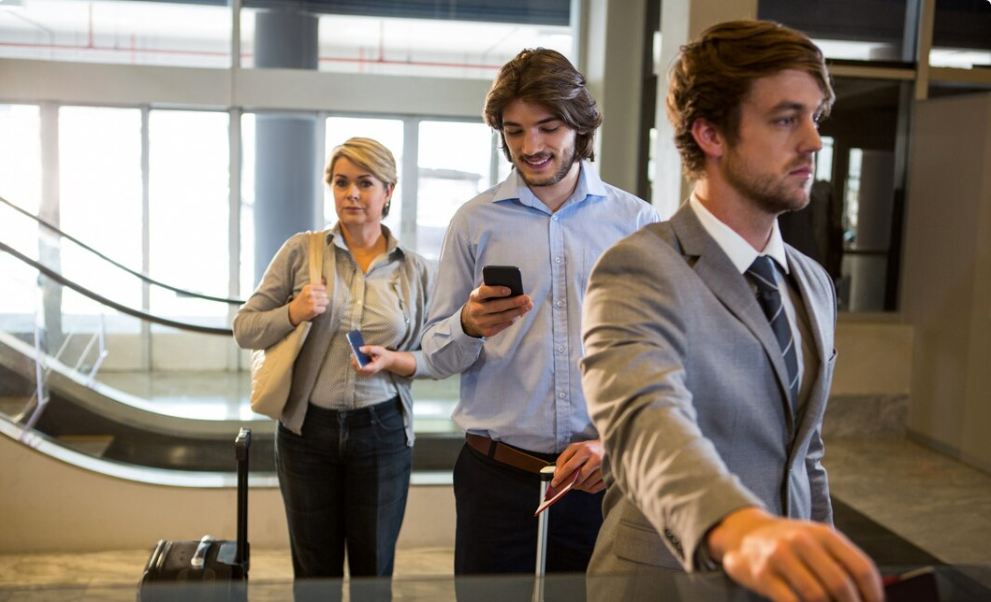
by Dulce Navarro | Apr 14, 2025 | Business, Countries, Europe, Lifestyle, Travel, Work
The Best Hotels for Business Travel in Paris
Paris is not only the City of Light but also a global hub for business and commerce. Whether you’re attending a conference, closing deals, or networking with international professionals, selecting the right hotel can significantly enhance your productivity and comfort. Here’s a professional overview of the best hotels for business travel in Paris, including key amenities, locations, and services to help make your trip seamless and successful.
1. Four Seasons Hotel George V
Located just off the Champs-Élysées, the Four Seasons Hotel George V offers a luxurious yet business-friendly environment. With spacious meeting rooms, 24-hour business services, and high-speed internet throughout the property, it’s a top choice for executives. The on-site dining and wellness options also make it easy to balance work and relaxation.
2. Hôtel Le Bristol Paris
Renowned for its elegance and impeccable service, Le Bristol is ideal for business travelers who value discretion and efficiency. The hotel offers fully equipped conference spaces, private dining rooms for meetings, and in-room workstations. Located on Rue du Faubourg Saint-Honoré, it’s also close to major embassies and corporate offices.
3. Hyatt Paris Madeleine
This centrally located boutique hotel provides the perfect blend of style and practicality. With meeting spaces, private lounges, and a multilingual staff, it caters well to international business travelers. Its proximity to major business districts and shopping avenues makes it a strategic and pleasant choice.
4. Pullman Paris Tour Eiffel
If your business itinerary involves large-scale conferences or events, the Pullman Paris Tour Eiffel should be on your radar. Its extensive conference facilities, modern business amenities, and proximity to the Eiffel Tower make it both a functional and scenic option. The hotel is especially popular for tech and trade events.
5. Le Roch Hotel & Spa
For a more boutique experience, Le Roch Hotel & Spa is perfect. While it’s smaller in scale, it offers premium amenities, private meeting rooms, and a tranquil setting. The personalized service and contemporary design cater to creative professionals and entrepreneurs seeking inspiration in comfort.
6. Sofitel Paris Le Faubourg
With a prime location near the Place de la Concorde, the Sofitel Paris Le Faubourg caters to luxury business travelers with its elegant interiors and fully-equipped business center. This hotel is favored by professionals attending events in central Paris and those who enjoy top-tier hospitality services.
7. Hotel Lutetia
Located in Saint-Germain-des-Prés, Hotel Lutetia merges Art Deco sophistication with advanced business services. The hotel features modern boardrooms, luxury suites with workspaces, and a renowned concierge team ready to assist with any corporate need. It’s ideal for executives who want a refined yet productive environment.
8. Renaissance Paris Vendôme Hotel
For travelers seeking Marriott’s reliability combined with Parisian elegance, this hotel is a perfect choice. It offers a 24-hour business center, flexible meeting rooms, and ergonomic in-room workspaces. The Renaissance is a great choice for international guests attending meetings in central Paris or working remotely.
Key Considerations When Booking Business Travel Hotels in Paris
- Location: Choose a hotel near your primary business destinations to save time and maximize productivity.
- Wi-Fi & Technology: High-speed internet and tech support are essential for virtual meetings and staying connected.
- Business Amenities: Look for properties offering meeting rooms, workspaces, and office supplies.
- Concierge Services: A knowledgeable concierge can assist with transportation, reservations, and local business etiquette.
- Flexible Dining: Hotels with early breakfast, room service, and healthy options can keep you energized and on schedule.
Conclusion
Choosing the right hotel for business travel in Paris goes beyond comfort—it’s about enhancing your efficiency and creating the right setting for professional success. With a variety of premium hotels catering to business needs, the city offers exceptional options whether you’re here for a few days or an extended stay.
Stay Connected for More Travel and Lifestyle Inspiration. For more insights into travel, culture, and lifestyle tips, follow me on Instagram @salvadorordorica. If you’re seeking professional translation and localization services to enhance your global ventures, visit The Spanish Group — your trusted partner in bridging cultures worldwide.

by Dulce Navarro | Apr 14, 2025 | Culture, Europe, Lifestyle, Travel
Essential Travel Tips for Spain: What Every First-Time Visitor Should Know
Spain is one of Europe’s most vibrant and diverse travel destinations. From its historic cities and world-class cuisine to sun-soaked beaches and dynamic culture, Spain offers a unique experience for every kind of traveler. However, first-time visitors can benefit from understanding a few practical tips and cultural nuances to make the most of their journey.
1. Understanding Regional Differences
Spain is a mosaic of regions, each with its own identity, traditions, and even languages. While Spanish (Castellano) is the official national language, regional languages such as Catalan, Galician, and Basque are also widely spoken. Cities like Barcelona and Bilbao often use their regional languages in signage, public announcements, and even menus.
Be respectful and open-minded about these cultural differences, and avoid making generalizations. Acknowledging regional diversity will enrich your experience and open doors to deeper connections with locals.
2. Travel Documentation and Visa Requirements
If you’re traveling from the U.S., Canada, or most EU countries, you can enter Spain without a visa for up to 90 days. However, it’s crucial to ensure your passport is valid for at least six months beyond your planned stay. For non-Schengen countries, confirm visa requirements ahead of time.
Make digital copies of your passport and important documents. While Spain is generally safe, having backups can be essential if anything is lost or stolen.
3. Navigating Spanish Mealtimes
One of the most delightful yet surprising aspects of Spanish culture is the schedule for meals. Lunch, the biggest meal of the day, typically occurs between 2:00 and 4:00 p.m., while dinner often begins around 9:00 or even later. Restaurants may close between lunch and dinner, so plan accordingly.
If you’re hungry during the off hours, look for tapas bars that offer small plates and beverages throughout the day. And don’t forget to try regional specialties, from Andalusian gazpacho to Galician octopus.
4. Getting Around Spain
Spain boasts an excellent transportation network. High-speed trains (AVE) connect major cities like Madrid, Barcelona, Seville, and Valencia efficiently and comfortably. For regional travel, buses are economical and reliable.
Within cities, metros, trams, and buses make local transportation easy. If you plan to drive, note that automatic cars are rare and often more expensive to rent than manual ones. Also, parking in city centers can be challenging and costly.
5. Embrace the Spanish Pace of Life
Spanish culture values leisure, family, and quality of life. Businesses often close for several hours in the afternoon for siesta, particularly in smaller towns. Sundays are typically reserved for rest and family gatherings, with many shops and businesses closed.
Instead of packing every hour with activities, adopt the local rhythm. Enjoy long lunches, take leisurely evening strolls (paseos), and embrace the art of simply being present.
6. Money Matters: Currency and Tipping
Spain uses the euro, and credit cards are widely accepted. However, it’s wise to carry some cash for small purchases, markets, and remote areas. ATMs are plentiful, but check with your bank regarding international fees.
Tipping is appreciated but not obligatory. In restaurants, rounding up the bill or leaving 5-10% for excellent service is customary. For taxis and hotel staff, small tips are welcome but not expected.
7. Learn Basic Spanish Phrases
While many Spaniards speak English, particularly in tourist areas, knowing a few basic phrases in Spanish goes a long way. Simple greetings like “Hola” (Hello), “Gracias” (Thank you), and “¿Dónde está…?” (Where is…?) can make interactions smoother and more pleasant.
Locals appreciate the effort and are often more inclined to help if you try to communicate in their language.
8. Stay Aware of Local Customs and Etiquette
Spaniards are generally warm and social. Personal space may be less than what some travelers are used to, and greetings often include a light kiss on each cheek in more casual settings.
Dressing well, especially in cities, is also a cultural norm. While casual attire is fine for beaches or outdoor adventures, polished clothing is appreciated in urban settings, especially when dining out.
9. Be Mindful of Pickpockets
Spain is a safe country overall, but pickpocketing can occur, especially in busy areas like Las Ramblas in Barcelona or crowded metro stations in Madrid. Use a crossbody bag, keep valuables secure, and avoid keeping your wallet or phone in your back pocket.
Always stay aware of your surroundings, particularly in tourist-heavy areas and major transport hubs.
10. Enjoy the Festivals and Public Holidays
Spain hosts some of the world’s most unique and exciting festivals. Whether it’s La Tomatina in Buñol, Semana Santa in Seville, or the Running of the Bulls in Pamplona, participating in local celebrations offers an unforgettable cultural experience.
Keep in mind that many cities shut down for major public holidays, so plan your travel itinerary accordingly.
Final Thoughts
Traveling to Spain for the first time can be both thrilling and enriching. By preparing with these essential tips, you’ll navigate the country more smoothly and gain a deeper appreciation of its culture, history, and people.
Whether you’re exploring Moorish palaces in Granada, sipping Rioja in La Rioja, or enjoying a flamenco performance in Seville, Spain offers endless treasures for the curious traveler.
Stay Connected for More Travel and Lifestyle Inspiration
For more insights into travel, culture, and lifestyle tips, follow me on @salvadorordorica. If you’re seeking professional translation and localization services to enhance your global ventures, visit The Spanish Group — your trusted partner in bridging cultures worldwide.

by Dulce Navarro | Apr 10, 2025 | Business, Company, Culture, Lifestyle, Travel, Work, Worldwide
Remote Work Travel Tips: Balancing Work and Adventure
As a company director, you understand the importance of staying productive while traveling. With the rise of remote work, the opportunity to combine work and travel has become more accessible than ever. However, maintaining a balance between work responsibilities and the desire for adventure can be challenging. In this post, we’ll share practical tips to help you achieve a successful blend of both, ensuring you stay on top of your business while enjoying the perks of traveling.
1. Choose the Right Destination
Choosing the right destination is crucial for both your work and travel experience. A location with reliable internet and work-friendly environments is key. Some destinations, like digital nomad hubs such as Bali, Lisbon, and Barcelona, cater to remote workers, offering coworking spaces, high-speed internet, and a vibrant community of like-minded individuals. Consider destinations with time zones that align with your work schedule for seamless communication with your team.
2. Plan Your Work Hours Wisely
One of the most challenging aspects of remote work while traveling is staying on track with your work schedule. The best approach is to plan your work hours in advance. If you’re in a location with a significant time difference, establish a work schedule that allows you to be productive while still leaving time to explore. For example, consider working during early morning hours or late afternoons, leaving your mid-day open for activities and sightseeing.
3. Establish a Comfortable Workspace
Having a designated workspace is essential for maintaining productivity while traveling. Whether it’s a quiet corner in a coffee shop, a coworking space, or a corner of your hotel room, make sure your workspace is free from distractions. Invest in portable equipment like a comfortable chair, ergonomic laptop stand, and noise-canceling headphones to ensure you can work efficiently wherever you are.
4. Set Clear Boundaries Between Work and Play
When you’re constantly on the move, it’s easy to let work spill into your leisure time. However, it’s important to set clear boundaries to avoid burnout. Make sure you have specific work hours, and once your workday is over, fully embrace your time off. Set expectations with clients or colleagues that you’ll be unavailable outside of those hours, ensuring you can enjoy your travels without constant interruptions.
5. Stay Organized with Tools and Apps
Staying organized is essential when balancing remote work and travel. Utilize productivity tools such as project management apps, time trackers, and communication platforms to keep everything on track. Tools like Trello, Asana, and Slack can help streamline your work processes and maintain clear communication with your team, no matter where you are in the world.
6. Prioritize Communication with Your Team
Good communication is vital for successful remote work. Regular check-ins with your team are essential to ensure that everyone is aligned on goals and expectations. Set up video calls or virtual meetings to maintain a personal connection with your team. Make sure they’re aware of your travel plans and time zone differences, so they can adjust accordingly.
7. Take Time to Unplug
While remote work offers flexibility, it’s important to take breaks and unplug from technology. Traveling offers a unique opportunity to disconnect from work and recharge. Schedule time during your travels to relax and engage in activities that allow you to fully immerse yourself in the local culture. Whether it’s hiking, trying local cuisine, or visiting historical landmarks, taking time off will help you come back to work refreshed and ready to tackle new challenges.
8. Be Prepared for the Unexpected
Traveling can be unpredictable, and remote work while on the road can sometimes present unforeseen challenges. From flight delays to changes in your work schedule, it’s important to remain flexible. Make sure you have backup plans in place, such as additional Wi-Fi hotspots, local SIM cards, and reliable travel insurance. Being prepared for unexpected situations will ensure that you can handle any hurdles that come your way.
9. Embrace the Local Culture
One of the greatest joys of working remotely while traveling is the ability to experience new cultures. Take the time to immerse yourself in the local traditions, food, and way of life. Engage with locals and learn from their experiences. Traveling isn’t just about work; it’s about personal growth and gaining new perspectives. Embrace the adventure and let it enrich your professional and personal life.
10. Maintain a Healthy Work-Life Balance
Lastly, maintaining a healthy work-life balance is key to sustaining your productivity and overall well-being. Remote work offers flexibility, but it can also blur the lines between work and personal time. Make sure to schedule regular breaks, get enough sleep, and stay physically active. Exercise can boost both your physical health and mental clarity, helping you stay energized and focused during work hours.
Conclusion
Balancing work and adventure while traveling may seem like a challenge, but with the right approach, it’s entirely possible. By planning your work hours, creating a productive workspace, setting boundaries, and embracing local cultures, you can successfully manage remote work while enjoying all the benefits of travel. Remember to stay organized, communicate effectively with your team, and prioritize self-care to maintain your productivity and well-being.
Stay Connected for More Travel and Lifestyle Inspiration. For more insights into travel, culture, and lifestyle tips, follow me on Instagram @salvadorordorica. If you’re seeking professional translation and localization services to enhance your global ventures, visit The Spanish Group — your trusted partner in bridging cultures worldwide.

by Dulce Navarro | Apr 9, 2025 | Business, Certified Translations, Company, Travel, Work, Worldwide
How Translation Services Can Enhance Your Business Travel Experience
In today’s fast-paced global economy, business travel remains an essential part of cultivating partnerships, exploring new markets, and securing growth opportunities. However, language barriers and cultural nuances can pose significant challenges that hinder communication and efficiency. This is where professional translation services become invaluable.
The Growing Importance of Multilingual Communication in Business
As companies expand internationally, the ability to communicate seamlessly across languages is not just a competitive advantage — it’s a necessity. Whether you’re attending conferences, meeting with international stakeholders, or negotiating deals abroad, accurate and culturally sensitive communication is key to making a positive impression and closing successful agreements.
Translation services can serve as a bridge, helping business travelers navigate unfamiliar environments with ease and confidence. By removing language barriers, these services empower professionals to focus on building relationships, understanding local markets, and driving strategic growth.
Pre-Travel Support: Translating Documents and Materials
Before stepping onto a plane, preparation is essential. Translation services can help ensure all your documents — from contracts and presentations to marketing collateral and product manuals — are professionally translated and localized for your destination market. This not only communicates professionalism but also reduces the risk of misunderstandings or legal misinterpretations during your meetings.
Furthermore, translated travel itineraries, hotel confirmations, and transportation guides make logistics smoother, especially when visiting countries where English is not commonly spoken. Having this information in the local language can save time, prevent confusion, and ensure a stress-free travel experience.
On-the-Ground Benefits: Real-Time Communication and Interpretation
Once you arrive at your destination, real-time communication becomes even more critical. Whether engaging in business negotiations, attending industry events, or navigating local services, professional interpreters and on-demand translation services can help you communicate effectively and respectfully.
In-person interpreters or remote video translation tools can bridge conversations instantly, allowing for fluid dialogue and mutual understanding. This is especially helpful in high-stakes environments where precision in language — such as legal or financial discussions — is vital. These services help avoid costly mistakes and foster trust among international partners.
Cultural Localization: More Than Just Words
Translation is not only about converting words from one language to another — it’s also about conveying intent, tone, and cultural context. Professional translation services employ native speakers and localization experts who understand regional customs, taboos, idioms, and professional etiquette.
This cultural intelligence can help avoid miscommunication and ensure your message resonates appropriately with your target audience. Whether you’re delivering a pitch, hosting a seminar, or launching a product, localized content demonstrates respect and cultural sensitivity — traits that are highly valued in international business.
Building Stronger International Relationships
When business travelers make an effort to communicate in the local language, it sends a powerful message of respect and commitment. This builds rapport and fosters long-lasting relationships. Translation services make it possible to maintain this consistency throughout the entire travel experience — from the initial handshake to follow-up emails after returning home.
In addition, bilingual business cards, localized website content, and translated business proposals are practical tools that enhance your presence and professionalism abroad. They also make it easier for local partners to engage with your brand on their terms, leading to more meaningful interactions.
Translation Services in the Digital Age
Technology has revolutionized translation services, making them more accessible and responsive than ever before. With mobile apps, AI-powered translation tools, and cloud-based document sharing, businesses can now access real-time support while on the move. However, machine translation alone is rarely sufficient for business-critical communications.
That’s why partnering with a professional translation service like The Spanish Group ensures you get the best of both worlds — cutting-edge technology combined with human expertise. Whether you need certified translations, business localization, or live interpretation, expert support is just a click away.
Peace of Mind While Traveling
Traveling for business can be stressful. With multiple time zones, cultural expectations, and tight schedules, having a trusted translation service by your side brings peace of mind. It ensures you are prepared for any situation — from ordering meals and asking for directions, to navigating complex discussions or handling emergencies.
This support allows you to focus on your goals without being distracted by language limitations. It empowers you to communicate confidently, make informed decisions, and represent your company with professionalism wherever you go.
Final Thoughts
Professional translation services are no longer optional for global-minded businesses — they are essential tools that facilitate meaningful communication, eliminate misunderstandings, and enhance your effectiveness while traveling. Whether you’re visiting Paris, Tokyo, São Paulo, or New York, clear and culturally aware communication will always set you apart.
So the next time you prepare for an international business trip, don’t just book your flight and hotel — invest in professional translation services. It’s a strategic move that pays dividends in reputation, relationship-building, and results.
Stay Connected for More Travel and Lifestyle Inspiration
For more insights into travel, culture, and lifestyle tips, follow me on @salvadorordorica. If you’re seeking professional translation and localization services to enhance your global ventures, visit The Spanish Group — your trusted partner in bridging cultures worldwide.

by Dulce Navarro | Apr 9, 2025 | Business, Company, Countries, Europe, Travel, Work
Building Strong Business Relationships Across Cultures in Europe
Europe, with its rich tapestry of languages, traditions, and cultural norms, offers both remarkable opportunities and unique challenges for professionals and organizations conducting international business. Understanding how to foster strong and lasting business relationships across cultures is essential to success in this diverse environment.
Understanding the European Business Landscape
Europe is not a monolith. From Germany’s punctual efficiency to Italy’s relationship-focused dealings, business etiquette and practices vary widely. Successful business leaders must approach each country with cultural sensitivity and a willingness to adapt.
For instance, northern European countries like Sweden, Finland, and Germany often value direct communication, professionalism, and time management. In contrast, southern European countries such as Spain, Italy, and Greece place a greater emphasis on personal relationships, hospitality, and flexibility in timing.
The Importance of Cultural Intelligence
Cultural intelligence—the ability to relate to and work effectively across cultures—is increasingly seen as a critical skill in today’s global business environment. Leaders and professionals must go beyond mere awareness of differences and actively develop strategies for building trust and rapport with colleagues, partners, and clients from diverse backgrounds.
This means doing your homework before meetings, being mindful of cultural norms (like bowing in some places or avoiding first names in others), and embracing humility when learning through missteps. Over time, these practices build mutual respect and open doors to deeper collaboration.
Building Trust in a Multicultural Context
Trust is the cornerstone of every successful business relationship, but how trust is established can vary widely across European cultures. In countries like the UK and Germany, trust is built through reliability, competence, and adherence to process. In contrast, in France or Italy, trust often emerges through frequent in-person interactions, shared meals, and personal rapport.
Understanding this dynamic is key. A German executive may expect a structured agenda and a well-documented plan, while an Italian counterpart may prefer a warm conversation over coffee before diving into business. Navigating these nuances effectively can set the tone for a successful long-term partnership.
Communication Styles and Expectations
Misunderstandings often arise due to different communication styles. Some cultures, such as those in the Netherlands or Denmark, value blunt honesty and clarity, even in criticism. Others, such as in Belgium or Portugal, may employ more diplomatic or indirect language to preserve harmony and respect.
Recognizing these styles helps you frame your message appropriately and ensures your intent is received as you mean it. It also signals to your counterpart that you respect their cultural context, which goes a long way in relationship-building.
The Role of Language in Relationship-Building
While English is widely spoken across the European business world, making the effort to learn and use a few phrases in your partner’s native language can be a powerful gesture of goodwill. It shows cultural respect, demonstrates preparation, and often creates a more comfortable atmosphere.
In countries like France, Italy, or Hungary, even a simple greeting or thank-you in the local language can open doors and deepen connections. Language is more than just a communication tool—it’s a bridge between worlds.
Adapting to Decision-Making Styles
Different countries have different norms when it comes to decision-making. In Scandinavian and Dutch cultures, decisions are often made through consensus, reflecting egalitarian values. Meanwhile, in France or Spain, a more hierarchical model may be followed where decisions come from the top.
When you understand and respect these styles, you are better equipped to manage expectations, navigate negotiations, and close deals effectively. Flexibility in your approach and patience during extended decision timelines are key traits of a successful international executive.
Social Etiquette and Business Protocols
Seemingly minor behaviors can have a major impact on the impression you make. In Switzerland or Germany, punctuality is paramount, and being late can be seen as disrespectful. In Mediterranean cultures, time may be viewed more flexibly, but hospitality and personal engagement are critical.
Small gestures—like dressing appropriately, presenting business cards respectfully, or offering a proper greeting—can reinforce professionalism and cultural sensitivity, solidifying your standing as a reliable and considerate partner.
Strengthening Long-Term Relationships
European business relationships are often nurtured over time. Whether it’s through quarterly visits, holiday greetings, or thoughtful check-ins, maintaining regular contact is essential. Demonstrating commitment to the relationship beyond the transactional level helps reinforce trust and loyalty.
In-person meetings, particularly in southern Europe, are still highly valued, even in the digital age. Sharing a meal, discussing family, or inviting a partner to visit your offices are all ways to go beyond contracts and create deeper bonds.
Conclusion
Building strong business relationships across cultures in Europe requires more than just strategy—it requires empathy, adaptability, and a genuine appreciation for diversity. By taking the time to understand the values, customs, and expectations of your counterparts, you can foster trust, collaboration, and lasting success across borders.
Whether you’re navigating a deal in Paris, developing a partnership in Berlin, or launching a project in Milan, your cultural fluency will be one of your greatest assets.
Stay Connected for More Travel and Lifestyle Inspiration
For more insights into travel, culture, and lifestyle tips, follow me on Instagram @salvadorordorica. If you’re seeking professional translation and localization services to enhance your global ventures, visit The Spanish Group — your trusted partner in bridging cultures worldwide.

by Dulce Navarro | Apr 8, 2025 | Business, Europe, Lifestyle, Travel, Work
Preparing for International Business Trips: A European Perspective
In today’s fast-paced global economy, international business trips have become a crucial part of networking, collaboration, and expanding a company’s reach. If you’re a company director embarking on a business trip to Europe, preparation is key. Whether you’re traveling to meet clients, attend conferences, or explore potential business partnerships, ensuring a smooth and successful trip requires strategic planning and attention to detail. In this blog, we will delve into the essential steps to prepare for your European business trip, providing you with insights and practical advice.
1. Research the Local Culture and Business Etiquette
One of the most important aspects of any international business trip is understanding the culture and business etiquette of the country you’re visiting. Europe is a diverse continent, and each country has its own unique business practices, communication style, and approach to negotiation.
In countries like Germany and Switzerland, punctuality is highly valued, and meetings are typically formal. In contrast, southern European countries like Italy and Spain may have a more relaxed approach to time, but building strong personal relationships is key. Researching the local customs and cultural nuances before you depart can help you avoid misunderstandings and foster better business relationships.
2. Secure Your Travel Documents
Before you even think about packing your bags, ensure that your travel documents are in order. For most European countries, US citizens do not require a visa for business visits lasting under 90 days. However, it’s important to check the specific requirements for the country you are visiting and ensure that your passport is valid for at least six months beyond your planned travel dates.
Additionally, some countries may require proof of travel insurance or an invitation letter from the host company. Confirm all visa and documentation requirements well in advance to avoid any last-minute complications.
3. Plan Your Travel Itinerary and Accommodations
When organizing your trip, consider the logistics of getting from one place to another, especially if you’re visiting multiple cities or countries. Europe has an extensive and efficient transportation network, with high-speed trains and budget airlines offering convenient travel options.
Choose accommodations that are close to your meeting locations or business events. Many international hotels in Europe cater to business travelers, offering amenities like high-speed internet, meeting rooms, and business centers. Be sure to book your accommodation well in advance, particularly if you’re traveling during peak business seasons or major trade events.
4. Organize Your Schedule and Meetings
Planning your business meetings is essential to making the most out of your trip. Confirm appointments with your contacts in advance and ensure you have all the necessary materials, such as business cards, presentations, and documents, prepared for each meeting.
If you’re attending conferences or trade shows, take the time to review the event agenda and select sessions or networking opportunities that align with your business goals. This will help you make the most of your time abroad and ensure that you leave with valuable connections and insights.
5. Language Considerations and Translation Services
While English is widely spoken in many European countries, especially in business contexts, it’s still beneficial to learn a few basic phrases in the local language. Greetings, pleasantries, and expressions of gratitude can go a long way in building rapport and demonstrating respect for the local culture.
If you’re dealing with important documents or negotiations, it’s advisable to engage a professional translation service to ensure that nothing is lost in translation. Accurate translations of contracts, proposals, and other legal documents are crucial for avoiding misunderstandings and ensuring that your business dealings are successful.
6. Understand the Local Legal and Financial Systems
In addition to cultural differences, Europe’s legal and financial systems can vary significantly from country to country. Understanding local tax regulations, invoicing practices, and business laws is vital when working with European partners. Familiarize yourself with the VAT system, as it applies to most goods and services in Europe and can affect your pricing and invoicing.
If you plan to make business investments or establish a legal entity in Europe, consulting with local legal and financial experts will help ensure that you comply with local laws and regulations.
7. Stay Connected and Communicate Effectively
During your trip, it’s crucial to stay connected with your team and clients back home. Ensure that you have reliable access to email, phone, and video conferencing tools, especially if your meetings will be held virtually or if you need to coordinate with colleagues across different time zones.
Consider using a local SIM card or portable Wi-Fi device to avoid expensive roaming charges. Many European hotels and cafes offer free Wi-Fi, but it’s always wise to have a backup option in case of connectivity issues.
8. Pack Smart and Be Ready for Anything
When packing for your European business trip, think about functionality and versatility. Choose business attire that is appropriate for the meetings you’ll be attending, but also pack comfortable clothing for sightseeing or any downtime you may have. A versatile travel wardrobe will help you feel confident and comfortable throughout your trip.
It’s also a good idea to pack some emergency essentials, such as a power bank, an international adapter, important medications, and a few snacks. These items can help make your journey smoother and more comfortable, especially during long flights or train rides.
Conclusion: A Successful Business Trip Awaits
Preparing for an international business trip to Europe requires careful planning and attention to detail. By researching the local culture, securing travel documents, organizing your itinerary, and understanding the legal and financial landscape, you can ensure a successful and productive trip. Embrace the opportunities that international business travel offers, and approach each meeting with professionalism and an open mind.
Stay Connected for More Travel and Lifestyle Inspiration. For more insights into travel, culture, and lifestyle tips, follow me on Instagram @salvadorordorica. If you’re seeking professional translation and localization services to enhance your global ventures, visit The Spanish Group — your trusted partner in bridging cultures worldwide.






